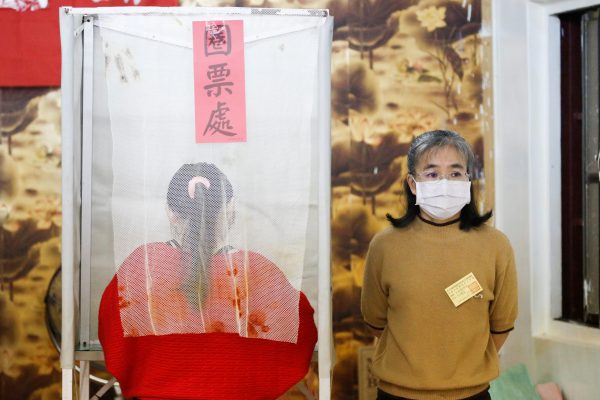The Democratic Progressive Party (DPP) finished its first term in power in both the executive and legislative arms of government, having passed several important reform and policy packages. The opposition Kuomintang (KMT) secured a majority in the 2018 local elections recovering from the collapse some predicted following the KMT’s national defeat in 2016.
The KMT’s presidential candidate Han Kuo-yu burst forth from what was a DPP mayoral stronghold amid accusations of populist fear mongering, traitorous China loving and drunken ignorance. In the face of referendum defeat and conservative resurgence, progressive activists that rode the Sunflower Movement wave in 2014 are struggling to maintain momentum. New minor political parties emerged to contest the 2020 elections, while the 2016 ‘third force’ parties are yet to secure footing as permanent contenders.
International observers have pointed to presidential election polls as evidence of Taiwanese opinion turning against China. Pollsters and commentators declared the election as a certain victory for the DPP incumbent President Tsai Ing-wen, signifying a rejection of the KMT’s China-friendly agenda.
Tsai’s rebuttal of Xi Jinping’s ‘Message to Compatriots in Taiwan,’ denunciation of authoritarian suppression in Hong Kong, preference for a ‘Taiwan consensus’ over the ‘1992 consensus’ and New Southbound Policy are all evidence of her less-than-friendly stance towards China. Han, on the other hand, visited Hong Kong, Macau and Shenzhen to meet with PRC officials and sign trade deals, demonstrating a willingness to further integrate with China.
Han also described Taiwan as needing to balance the interests of powerful suitors, each ready to resort to violence should Taiwan become too close to either the United States, China or Japan. Given Han’s relative warmth towards China and reports of pro-China media influencers supporting his campaign, forecasts of his impending electoral defeat bolstered predictions of US–Taiwan strategic alignment against an emerging Chinese regional hegemony.
But in furthering these narratives without broader context, there is a risk of conflating two presidential candidates with broader political problems and structures.
Taiwan’s complex sovereignty dilemma is still the source of most electoral cleavage and, therefore, is particularly salient in domestic and international media coverage. But electoral outcomes cannot all be reduced to the China factor. While the Hong Kong protests and China’s electoral interference campaigns have caught Taiwan’s attention, these influences are at times overstated and written into the presidential election as symbols of a binary vote for or against China.
In comparison to presidential elections, Taiwan’s legislative elections typically receive less international attention but are nonetheless also important for both policy outcomes and readings of voter choices.
The Legislative Yuan is key to determining the nature of governance from 2020. If the DPP retains the executive but loses legislative majority, Tsai may have to navigate challenges similar to the 2000–2008 Chen Shui-bian administration where DPP internal conflicts and a hostile KMT Legislative Yuan undermined the presidency.
The significance of third-party options is another important factor in the legislative election. While James Soong ran as a candidate for president, his campaign primarily boosts his People First Party (PFP) in its fight to retain its few legislative seats. The other minor party with legislative seats, the New Power Party (NPP), has split over a disagreement on cooperation with the DPP, causing some of its most prominent candidates to run as independents with DPP backing.
Both the PFP and NPP face competition from the newly established Taiwan People’s Party (TPP) led by Taipei Mayor Ko Wen-je and other minor parties including the Taiwan Green Party and the Taiwan Statebuilding Party. The TPP hopes to capitalise on Ko’s image as a neutral option between the KMT and DPP camps and soak up votes from those disillusioned by both the major parties and the complicity of Soong’s PFP.
But unlike in 2014, Ko is now competing against the DPP and has lost popularity among some younger voters who hoped that he would demonstrate a more progressive stance. With so many minor players spread across a shifting political landscape, legislative outcomes are difficult to predict.
Another important element is youth participation and individual voting preferences across ballots. There is the potential for split voting as voters cast presidential, district and party ballots. Some may have choosen to cast their presidential ballot for Tsai, spoil their district ballot and cast their party ballot for a minor party. Such split preferences were certainly the case for many youths in the 2016 elections. In the aftermath of social movements and disastrous campaigning for the 2016 elections, the KMT bled youth votes.
There are many staunch KMT-supporting families with youths choosing to not vote or even voting for KMT opponents. But the wave of youth support that contributed to propelling Tsai’s DPP into power has also since become increasingly disillusioned with the party.
Did the KMT or DPP successfully mobilise the disaffected beyond a presidential vote? Which minor parties, if any, will pass the minimum threshold of votes to secure legislative seats? Answers to these questions are among those critical to understanding the political outcome this week.
Graeme Read is a PhD candidate at the Australian Centre on China in the World, College of Asia and the Pacific, The Australian National University.

